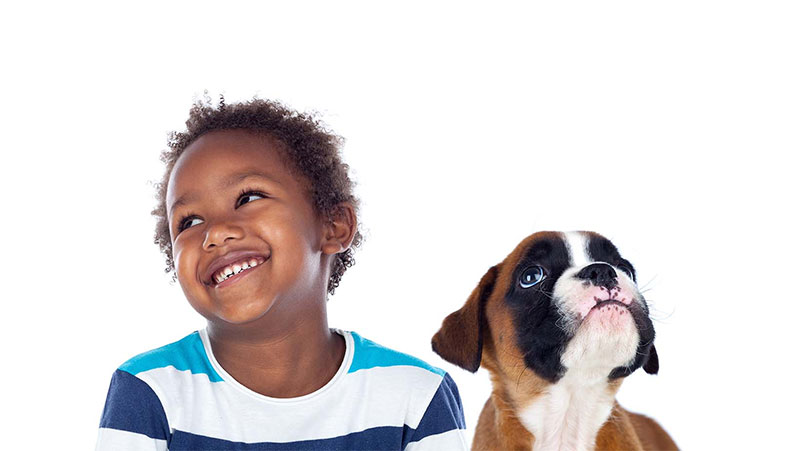Owning a pet can offer a multitude of wellness benefits, especially for families with autistic children. For example, research from the University of Lincoln found that autistic children experience fewer meltdowns in the presence of a pet dog and their parents’ stress levels are also lowered as a result (bonus factor!).
Some other benefits include:
Helping to reduce stress and anxiety.
Helping to improve social skills as children feel more relaxed around their pet.
Helping with language development and communication skills as the child speaks, plays and communicates with their pet.
Teaching children about empathy and how to care for something.
Helping to reduce the frequency of or prevent autistic ‘meltdowns’.
Encouraging independence as the child could feel more comfortable going into new places with their animal.
Providing routine, stability and security, which is great for people with ASD who thrive in a routine-led environment.
Giving children with disabilities and autism a sense of responsibility and pride.
Pets don’t judge and are a friendly companion for life.
Dogs for autism therapy
Dogs have been man’s best friend for thousands of years, and it’s not hard to see why. They love to please their owners, are extremely loyal and are super clever too!
Obviously, each dog has its own personality but all things considered, they’re all loveable companions. That is why many people consider dogs to be the best pet for an autistic child.
If you’re fostering autistic children and are considering pet therapy, a dog has many benefits:
They can be trained to apply weighted pressure when your foster child is extremely distressed. This is a grounding technique that helps calm autistic children during a meltdown.
The act of licking is also known to be a calming influence during moments of severe upset.
If a child with autism is prone to inflict harm on themselves during a meltdown, dogs can be trained to use their paws and body as a blocker to prevent the child from hurting themselves.
Dogs don’t speak our language either, which means they’re great for kids who communicate non-verbally. They will find other ways to interact, creating a strong, unique bond.
Do dogs enhance autistic children’s social skills?
At Right Start Inc we know that socializing can be difficult for autistic children.
While some autistic children might know intuitively how to communicate with other people, others might struggle. For parents, it can be hard to explain to people outside their family why their child has trouble interacting.
The National Autistic Society explains how autistic children can appear withdrawn in social situations, be difficult to comfort, and can have a tendency to be ‘rule-bound’.
There are methods you can use to help your child develop their communication skills, such as seeking autism-friendly social groups in your local area.
One study showed that children were more likely to engage in behaviors such as introducing themselves, asking for information or responding to questions when they had a family pet.
The type of communication dogs can assist with doesn’t have to be verbal. They can also help a child improve their body language and hand signals if they are non-verbal.
Other benefits of dogs for autistic children
Road safety
Assistance dogs can offer support to children who don’t have a sense of speed or danger.
This can also provide reassurance for their parents. Some autism assistance dogs are specially trained to provide children with confidence and to assess surrounding areas for danger.
These dogs can travel with children to any public place, such as shops, libraries, and restaurants.
They will only cross the road when instructed to do so (such as by a parent’s voice) and are trained to sit and prevent children from moving if they haven’t been commanded.
Playing games
Dogs can be wonderful companions for autistic children. They can encourage children to be more outgoing and develop their communication skills by playing games.
This might include playing hide and seek, which teaches a child about taking turns and sharing.
Other sensory games that encourage movement, fine motor skills and speech include tug of war and fetch.
Companionship
Dogs have the ability to bond quickly with children, allowing an autistic child to make a friend. Golden retrievers, Labradors and Labradoodles (lab-poodle mixes) in particular tend to have a calm temperament and high levels of intelligence.
Children can talk to their dog, knowing they will listen without judgment, and their pet can ease feelings of loneliness.
This comfort from a dog can be incredibly reassuring to a child when they are upset, as a well-trained family pet can be a calming influence.
The unconditional love from a dog on a daily basis can help to build confidence and independence. The added responsibility of walking, feeding and taking care of a dog can teach children practical life skills.

